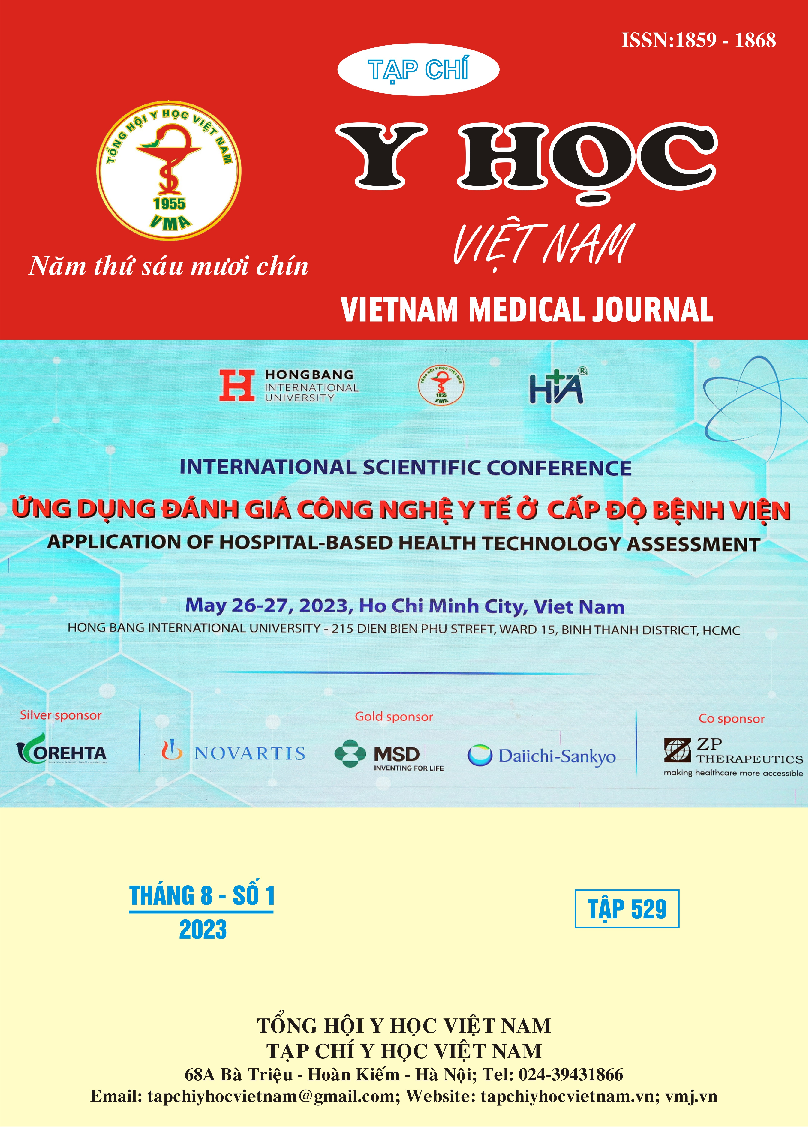ANALYSIS OF THE CURRENT SITUATION OF ADHERENCE TO OUTPATIENT TREATMENT FOR HYPERTENSION PATIENTS AT HANOI HEART HOSPITAL
Main Article Content
Abstract
Background: Hypertension is a chronic disease that requires long-term treatment, and compliance can be a challenge for outpatients. According to the World Health Organization, the worldwide treatment adherence rate reached only 20 – 30%. The Hanoi Heart Hospital treats 201,123 outpatients each year. Objectives: To describe the level of treatment adherence among hypertensive outpatients at Hanoi Heart Hospital and to identify the factors that influence adherence. Study population and methods: A cross-sectional study was conducted through the examination of medical prescriptions and direct interviews with 132 outpatients. Data were analyzed using statistical descriptive and multivariate regression methods. Results: The majority of outpatients (54.5%) demonstrated low adherence to lifestyle modifications, while the rate of high adherence was only 22%. Patients over 80 years old and those who did not attend school had a 0% adherence rate. Inadequate therapeutic compliance was reported in 30.4% cases, moderate compliance in 31.8%, and good compliance in 37.8%. Statistically significant factors that influenced treatment adherence were educational level has a significant impact, understanding the effects of medication, and treatment duration. Conclusion: The overall adherence rate for outpatient treatment of hypertension at the Hanoi Heart Hospital is high, but low specifically in terms of lifestyle modifications and therapeutic adherence. Factors that influence treatment adherence in outpatients include their level of education, understanding of medication effects and treatment duration.
Article Details
Keywords
treatment adherence, Hanoi Heart Hospital, hypertension.
References
2. Nguyễn Thị Mỹ Hạnh (2013), "Khảo sát mối liên quan giữa sự tuân thủ dùng thuốc và kiểm soát huyết áp ở bệnh nhân tăng huyết áp đang điều trị ngoại trú", Tạp chí Y học TP. Hồ Chí Minh. Tập 17, tr. 96-102.
3. Hội tim mạch học quốc gia Việt Nam (2018), "Khuyến cáo về chẩn đoán và điều trị bệnh tăng huyết áp".
4. Lý Ngọc Tú (2020), "Đánh giá sự tuân thủ điều trị tăng huyết áp trong ngăn ngừa đột quỵ thiếu máu não tái phát tại tỉnh Sóc Trăng", Luận án tiến sỹ y học - Đại học y dược thành phố Hồ Chí Minh.
5. Nguyễn Thị Thơm và Bùi Văn Cường, Nguyễn Hồng Hạnh, Phạm Thị Thu Hương, Đỗ Minh Sinh (2017), "Thực trạng tuân thủ điều trị tăng huyết áp của người bệnh điều trị ngoại trú tại bệnh viện đa khoa tỉnh Quảng Ninh năm 2017", Khoa học điều dưỡng. 01(03), tr. 35 - 42.
6. Jankowska-Polańska B. et al. (2016), "Relationship between patients' knowledge and medication adherence among patients with hypertension", Patient Prefer Adherence. 10, tr. 2437-2447.
7. Tadesse Melaku Abegaz et al. (2017), "Nonadherence to antihypertensive drugs: A systematic review and meta-analysis", Medicine (Baltimore). 96(4).
8. M. T. Brown, J. K. Bussell (2011), "Medication adherence: WHO cares?", Mayo Clinic Proceedings. 86, tr. 304 - 314.
9. WHO (2009), "Global Health Risks", World Health Organization Geneva.
10. WHO (2019), "Ten threats to global health in 2019".


